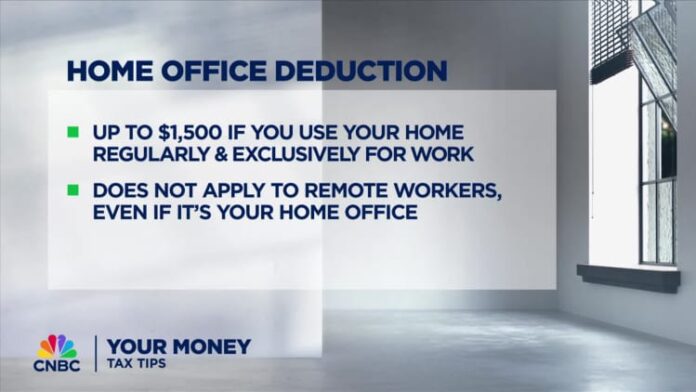Witthaya Prasongsin moment | Getty Images
Despite a slump in U.S. home sales, many homeowners made a profit selling properties in 2023. Those winnings could trigger a tax bill this season depending on the size of the windfall, experts say.
According to ATTOM, a nationwide real estate database, home sellers made a profit of $121,000 in 2023 on the typical median price of a single-family home. That's down from $122,600 in 2022
But sometimes profits exceed the IRS limits for tax-free gains and “it's a shock” to sellers, said accountant Miklos Ringbauer, founder of MiklosCPA in Los Angeles
More from Smart Tax Planning:
You can find more news about tax planning here.
Still, “the tax laws were written to encourage home ownership,” and many sellers are eligible for a tax break, Ringbauer said. A
Single homeowners can shield up to $250,000 of profit from home sales from capital gains taxes, and married couples filing jointly can exclude up to $500,000 as long as they meet IRS eligibility.
If you have owned the property for more than a year, gains over $250,000 and $500,000 are subject to long-term capital gains tax, which is 0%, 15% or 20% depending on your taxable income in 2023. (You calculate “taxable income” by subtracting the greater of the standard or itemized deductions from your adjusted gross income.)
Who is eligible for the capital gains exemption?
There are strict rules to qualify for the capital gains exclusion of $250,000 or $500,000, Ringbauer warned
The “ownership test” states that you must have owned the home for at least two of the last five years prior to selling your home – but this is only required for one spouse if you are married and filing jointly.
There is also a “residence test,” which requires the home to be your primary residence for all 24 months of the five years prior to the sale, with some exceptions. (The 24 months of residency can be anywhere within the five-year period and does not have to be a single block of time.)
For complete exclusion, both spouses must meet the residency requirement.
A partial exclusion may also be possible if you sold your home due to a job relocation, health reasons or “unforeseeable events,” according to the IRS.
Generally, you cannot receive the tax break if you received the exclusion on the sale of another home within two years of your closing date.
How to reduce the profit on your home sale
If your capital gain exceeds the IRS exclusions, it's possible to reduce your gain by increasing your home's original purchase price, or “basis,” according to certified financial planner Assunta McLane, managing director of Summit Place Financial Advisors in Summit, New Jersey .
According to the IRS, you can increase the basis of your home by making certain improvements you have made to the property to “extend its useful life.”
For example, you might consider the cost of home additions, updated systems, landscaping, or new appliances. However, the costs of repairs and maintenance are generally not included.
Of course, you need detailed records to demonstrate capital improvements because “estimates don't work in an audit,” Ringbauer said.
After a home sale, the IRS receives a copy of Form 1099-S, which shows your closing date and gross proceeds. However, you will need documentation to prove any changes to the foundation of your home.
Failure to keep records of home improvements throughout ownership is a “common mistake,” McLane said.

















